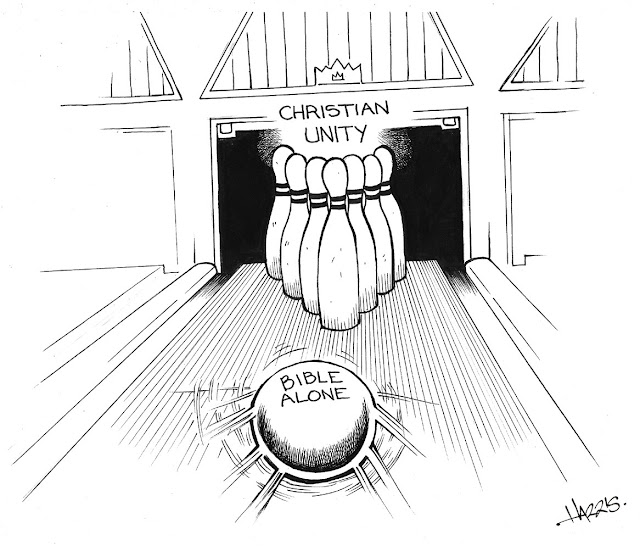Bible alone? Part 2
Yesterday I began speaking about the doctrine of Sola Scriptura. A lot could be written concerning the problems with this Formal Principle of the Reformation, but I will leave that to better minds. Instead, over the next two days I would just like to focus on the two main problems which drove me to consider more deeply the validity of the doctrine. After being involved in the Protestant world for a few years, two problems nagged at me:
Problem #1: Correct interpretation
This first problem was one that I saw first-hand. In my various non-Catholic wanderings, I had encountered some great pastors: faithful, holy and insightful. I was greatly encouraged by their witness and learned a great deal from them.
However, I began to notice that, even within the same parish, there was quite often a considerable diversity in theological opinions. Within the home groups there was also considerable latitude in belief and when a dispute arose, there wasn’t a clear path towards finding a resolution other than asking one of the church staff, and even then you couldn’t guarantee that you’d get the same answer from two different staff members. There was also a mild form of dissension in that the Pastor’s Sermon was often critiqued after the service and it would be discussed as to whether or not everyone agreed with it.
Denomination Diversity
These are only personal, anecdotal impressions, of course. However, when you consider different denominations, these interpretive disputes can be seen more clearly. Some denominations believe in infant baptism, others do not. Some denominations believe that baptism actually does something in the soul of the one being baptised, others affirm that it is just an outward symbol. Likewise, some denominations affirm some concept of Jesus’ real presence in the Eucharist, while others say that it is, again, just a symbol. Some denominations have female pastors, others say that’s invalid. Some affirm the Trinity, others deny it. This lack of doctrinal unity in the Protestant world concerned me greatly.
Right at the dawn of the Reformation you had Luther and Zwingli, two early leaders of the Reformation, disagreeing over the correct interpretation of “This is my body” – Luke 22:19. Each presented his own private, fallible interpretation of that passage, but with no Church Authority to resolve the dispute, there was no possible way to resolve the deadlock.
